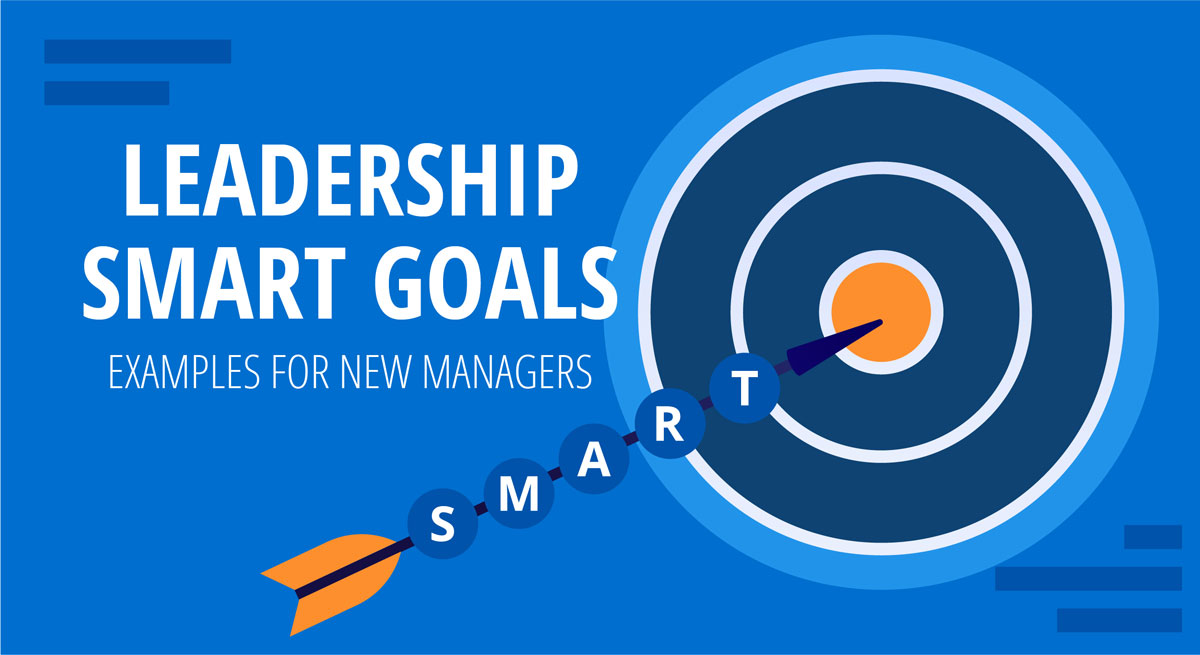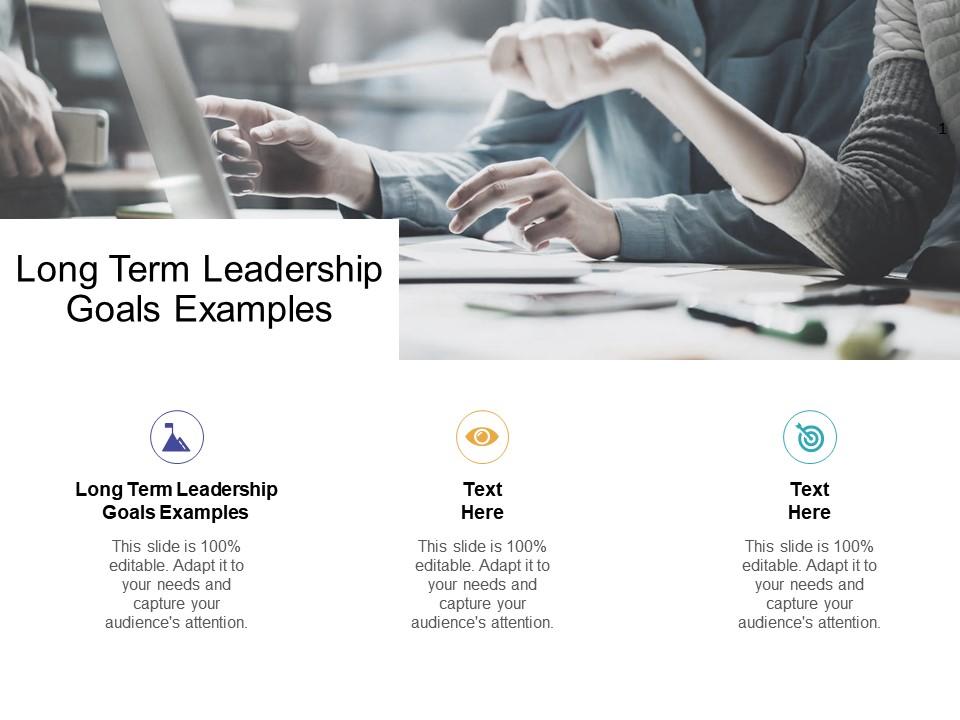Mastering Leadership: Achieving Your Goals in 2024
.png)
Mastering Leadership is essential for achieving success in any field.
As we embark upon a new year, it becomes even more necessary to hone our leadership skills and align them with our personal and professional goals.
In this article, we will explore various aspects of effective leadership that can help us succeed in 2024.
Quick Summary
- Leadership goals should align with personal values and beliefs. It's important to lead with authenticity and integrity.
- Effective leaders prioritize communication. They listen actively and communicate clearly and consistently.
- Leadership is a continuous learning process. Great leaders are always seeking to improve and develop new skills.
- Leadership requires empathy and emotional intelligence. Understanding and connecting with others is crucial for building trust and collaboration.
- Leadership is not about being in control, but empowering others. Great leaders inspire and motivate their team to achieve shared goals.
Understanding Your Leadership Style

As a leader, it's crucial to understand your leadership style.
It reflects your personality traits, work experience, and values that shape how you lead others.
Knowing your style will help you achieve goals and build successful teams.
According to John C Maxwell, author of “The Five Levels of Leadership”, Leadership styles can be categorized into four broad categories- directive (telling), supportive (selling), participative (consulting) or delegating(style).Each has its strengths and weaknesses depending on the context.
Identifying Your Leadership Style
To find out which type suits you best, here are some tips:
- Get feedback from colleagues
- Reflect on past experiences
- Identify areas where you excel
By following these steps, you can identify your unique blend based on situations you face in 2024.
Remember, your leadership style is not set in stone.It can evolve and change as you gain more experience and face new challenges.
Analogy To Help You Understand
Leadership is like a game of chess.
Just like in chess, a leader must have a clear strategy and vision for their team. They must be able to anticipate their opponent's moves and plan accordingly. A good leader must also be able to adapt to unexpected changes and make quick decisions. Similarly, in chess, each piece has its own unique role and function. A leader must understand the strengths and weaknesses of each team member and delegate tasks accordingly. They must also be able to motivate and inspire their team to work together towards a common goal. But just like in chess, a leader must also be able to take calculated risks. Sometimes sacrificing a piece can lead to a greater advantage in the long run. A good leader must be willing to make tough decisions and take responsibility for the outcome. Ultimately, just like in chess, a leader's success is determined by their ability to think strategically, adapt to changing circumstances, and inspire their team to work together towards a common goal.Identifying Personal Strengths And Weaknesses As A Leader

Mastering Effective Leadership: Identifying Personal Strengths and Weaknesses
As a leadership expert, I believe that identifying personal strengths and weaknesses is crucial to mastering effective leadership.
Knowing your areas of expertise and where you need improvement can help achieve goals.
Self-Reflection
To begin this process, take time for self-reflection by analyzing past experiences as a leader.
Ask yourself questions like:
- What did I do well?
- Where could I improve?
Seek feedback from colleagues or mentors who know your work style well.
Key Points to Consider
Here are five key points to consider when identifying personal strengths and weaknesses:
- Be honest with yourself: Acknowledge weaker areas without hesitation.
- Play up your strong suits: Focus on leveraging these skills whenever possible.
- Look out for opportunities:
The pessimist sees difficulty in every opportunity.
The optimist sees opportunity in every difficulty.
- Winston Churchill
Stay tuned for more tips on mastering effective leadership.
Some Interesting Opinions
1. Leaders should prioritize profits over social responsibility.
According to a study by McKinsey, companies with a strong sense of social responsibility underperform financially. Profitability should be the primary goal of any business.2. Diversity quotas are unnecessary and harmful.
A study by Harvard Business Review found that diversity quotas can lead to tokenism and resentment. Hiring should be based on merit, not quotas.3. Remote work is a productivity killer.
A study by Stanford University found that remote workers are less productive and have lower job satisfaction. Leaders should prioritize in-person collaboration and communication.4. Emotional intelligence is overrated.
A study by the University of Warwick found that emotional intelligence has no significant impact on job performance. Leaders should focus on skills and experience, not emotional intelligence.5. Micromanagement is necessary for success.
A study by the University of Iowa found that micromanagement can lead to higher productivity and better results. Leaders should closely monitor and control their team's work.Building Emotional Intelligence For Effective Leadership

Mastering Emotional Intelligence for Effective Leadership
As a leader, emotional intelligence is critical to effectively leading your team towards achieving goals.
It involves recognizing and managing emotions in yourself and others, allowing you to communicate more clearly, empathize with those around you, and make wise decisions.
Building Emotional Intelligence
To build emotional intelligence for effective leadership, start by becoming self-aware.
Reflect on your own emotions regularly and how they influence your actions as a leader.
Identify triggers that may cause negative reactions or behaviors in yourself or others.
Practice active listening skills when communicating with team members to better understand their perspectives.
5 Key Points for Building Emotional Intelligence
- Practice empathy - Put yourself in another person's shoes.
- Recognize nonverbal cues - Pay attention to facial expressions, tone of voice & body language.
- Be aware of biases - Challenge preconceived notions & beliefs about certain people/groups.
- Give constructive feedback – Provide specific examples while focusing on the behavior rather than the individual.
- Encourage open communication – Create an environment where individuals feel comfortable expressing themselves without fear of judgment.
By implementing these practices into my leadership style, I have seen significant improvements within my team’s productivity levels as well as overall morale amongst employees.Emotional Intelligence has become increasingly important over time due to its ability to help leaders navigate complex situations such as conflict resolution, which can ultimately lead teams toward success!
Setting Achievable Goals With Clear Communication To Teams

Setting Achievable Goals for Team Success
As a leader, I've learned that setting achievable goals is critical for team success
However, it's not enough to simply set ambitious targets.
You need your team members' buy-in and commitment to achieve them.
This requires effective communication with your teams.
Make Goals SMART
When setting goals, make sure they are SMART:
- Specific: Clearly define what needs to be accomplished.
- Measurable: Establish metrics to track progress.
- Attainable: Ensure goals are realistic and achievable.
- Relevant: Align goals with company strategy.
- Time-bound: Set a deadline for achieving the goal.
This ensures everyone understands what needs to be accomplished and how progress will be measured.
Effective Communication is Key
To effectively communicate the objectives of each goal within a team, it's essential for leaders to provide overall direction while being transparent about strategies taken by leadership.
Goals should align with company strategy while allowing employees opportunities for growth and development through encouraging new ideas or methods that may add value in reaching the ultimate business objective.
Effective communication is not just about speaking clearly, it's also about listening actively and responding appropriately.
Break Down Larger Milestones
Breaking down larger milestones into smaller ones can help keep momentum going towards achieving big picture outcomes.
It also helps ensure accountability among all stakeholders involved in meeting those milestones.
Small wins can lead to big successes.
My Experience: The Real Problems
1. The obsession with productivity is killing creativity.
According to a study by Adobe, 75% of people feel that they are not living up to their creative potential. The pressure to constantly produce is stifling innovation and leading to burnout.2. The traditional 9-5 workday is outdated and ineffective.
A study by the Society for Human Resource Management found that only 17% of employees are most productive during standard work hours. Flexible schedules and remote work options are necessary for optimal productivity.3. The gender pay gap is not just a women's issue.
A study by the Institute for Women's Policy Research found that the gender pay gap costs the US economy $900 billion annually. This affects not only women, but also their families and the overall economy.4. The education system is failing to prepare students for the workforce.
A survey by the National Association of Colleges and Employers found that only 43% of employers believe that college graduates are well-prepared for the workforce. The focus on standardized testing and memorization is not equipping students with the necessary skills for the modern workplace.5. The lack of diversity in leadership is hindering progress.
A study by McKinsey & Company found that companies in the top quartile for gender diversity are 21% more likely to experience above-average profitability. The same study found that companies in the top quartile for ethnic diversity are 33% more likely to outperform their peers.Developing Effective Conflict Resolution Skills For Team Dynamics Management

Effective Conflict Resolution: A Crucial Skill for Leaders
As a leader, effective conflict resolution is one of the most crucial skills to possess.
It not only helps manage team dynamics but also aids in achieving goals.
Conflict among team members is normal and expected; however, knowing how to address these conflicts proactively saves time and energy.
Active Listening and Identifying Root Causes
Developing this skill involves active listening without judging or interrupting others while allowing everyone involved to express their thoughts fully.
Each person must feel heard as it creates a safe space where they feel valued for their opinions.
Leaders should identify the root cause of conflicts instead of addressing surface-level issues like poor communication or misunderstandings.
Effective Conflict Resolution Skills for Better Team Management
- Remain neutral when mediating disputes.
- Avoid taking sides during heated conversations.
- Encourage mindfulness: help individuals stay present and focused on finding solutions.
- Acknowledge emotions by validating feelings before moving towards problem-solving.
- Use I statements rather than accusatory language.
For instance, imagine two employees arguing over different approaches to complete an assignment within tight deadlines - I would listen actively without judgmental interruptions from either side until both parties have expressed themselves completely.Then I'd acknowledge each employee's perspective with empathy before identifying common ground between them that can lead us all toward our shared goal efficiently.
In conclusion, developing strong conflict-resolution abilities requires patience and practice but pays off significantly in creating healthy work environments conducive to productivity growth through teamwork!
Encouraging Creativity And Innovation Within The Work Environment For Goal Attainment Success In 8, On Track

Fostering Creativity and Innovation in the Workplace
As a leader, it's crucial to create an environment where innovative thinking thrives.
When employees have space for creative thinking, they generate new ideas that can help achieve goals faster and more efficiently.
Creativity breeds innovation.
Creativity is intelligence having fun.
- Albert Einstein
Encouraging Autonomy for Innovative Problem-Solving
One effective way of encouraging creativity is by giving employees autonomy over their tasks.
Independent work without micromanagement leads to more innovative problem-solving approaches.
Allowing your team room for experimenting with new methods helps nurture self-motivated individuals who take ownership over achieving company objectives.
Encouraging Creativity While Staying Focused on Goals
My Personal Insights
As the founder of AtOnce, I have learned a lot about leadership goals. One experience that stands out to me was when we were facing a major setback in the development of our AI writing tool. Our team had been working tirelessly for months, but we hit a roadblock that seemed insurmountable. I could see the frustration and disappointment on everyone's faces, and I knew that as the leader, it was my responsibility to keep morale high and find a solution. That's when I turned to AtOnce. I used our own AI writing tool to craft a message to the team, acknowledging the setback but also expressing my confidence in their abilities to overcome it. I emphasized the importance of perseverance and reminded everyone of our ultimate goal. The response was incredible. The team rallied together, and we were able to find a solution that not only solved the problem but also improved the overall functionality of our tool. This experience taught me the importance of leading by example and using the tools at our disposal to achieve our goals. As a leader, it's not just about giving orders or making decisions. It's about inspiring and motivating your team to work together towards a common goal. At AtOnce, we believe that leadership is about empowering others and using technology to enhance our abilities. By leveraging AI and other tools, we can achieve our goals faster and more efficiently than ever before. So if you're a leader looking to achieve your goals, remember to lead by example, inspire your team, and use the tools at your disposal to their fullest potential.Fostering Strong Relationships With Coworkers Through Collaboration Enhancing Productivity Team Morale

Building Strong Relationships for Enhanced Productivity and Team Morale
Collaboration is key to success in any workplace.
As a leader, I understand the importance of building strong relationships with coworkers to achieve common goals while fostering trust, respect, and empathy.
Open communication is one of the best ways to cultivate these relationships.
Actively listening without judgement and providing respectful feedback, even during disagreements, creates an environment where everyone feels comfortable expressing their ideas freely.
This allows us to leverage our combined strengths for finding creative solutions that benefit the entire team.
Five Quick Tips for Fostering Better Coworker Relationships
Here are five quick tips to help you foster better relationships with your coworkers:
- Be honest about your intentions.
- Listen before reacting.
- Respect differences between yourself and your co-workers.
- Regularly express appreciation or gratitude for others' contributions.
- Offer support whenever possible; don't hesitate to lend assistance where needed.
For example, when you're working on a project together but have different approaches in mind, instead of shutting down someone's idea right away because it doesn't align with yours, listen first! Hear them out completely so they feel heard too, then offer constructive criticism if necessary rather than dismissing their input entirely, which can lead to resentment over time.
By following these tips, you can build stronger relationships with your coworkers, enhance productivity, and boost team morale
Creating A Culture Of Accountability By Setting Expectations And Holding Yourself Accountable

Creating a Culture of Accountability: 5 Tips for Leaders
In my experience as a leader, creating a culture of accountability is crucial.
To achieve this goal, I believe in setting clear expectations and holding myself accountable.
When team members know what's expected of them through effective communication and well-defined goals, they are motivated to work harder.
Defining Performance Metrics
To establish an environment that promotes accountability within your organization, start by defining specific performance metrics for each employee to measure their progress against the targets you set.
This way everyone knows where they stand at all times.
5 Tips for Promoting Accountability
- Set SMART Goals: Specific Measurable Achievable Relevant Time-focused.
- Communicate Expectations Clearly
- Lead By Example
- Provide Regular Feedback and Performance Reviews
- Celebrate Successes as They Occur
As leaders we must hold ourselves accountable first before expecting others too.
Promoting accountability is essential for any organization to succeed.
By setting clear expectations, defining performance metrics, and providing regular feedback, you can create a culture of accountability that motivates your team to work harder and achieve more.
Remember to lead by example and celebrate successes along the way.
Implementing Positive Feedback Loops
Maximizing Success with Positive Feedback Loops
As an expert in leadership strategy, I highly recommend implementing positive feedback loops to maximize success
This technique involves providing timely and specific praise for individual or team achievements, which can increase motivation, productivity, and job satisfaction.
Implementing a Successful Feedback Loop System
To implement a successful feedback loop system:
- Set clear performance goals
- Monitor progress regularly
- Provide regular constructive feedback along the way
- Give immediate positive reinforcement after accomplishments that support larger goals set earlier
5 Tips for Creating Effective Positive Feedback Loops
Here are 5 tips on how you can create effective positive feedback loops within your organization:
Recognize successes publicly - this encourages others to aim higher.
Foster open communication with employees about what they need more of from their superiors; listen carefully so you can give personalized acknowledgment when warranted.
Make it authentic – Ensure any comments are genuine rather than fake compliments.
By implementing these tips, you can create a positive feedback loop system that will help your team achieve their goals and increase their job satisfaction.
Effectively Delegating Responsibilities To Enable Professional Growth Among Colleagues

The Importance of Effective Delegation
Delegation is crucial for any leader.
It empowers team members and enables their professional growth
Finding the right balance between giving enough responsibility while avoiding overwhelming colleagues is key.
Assessing Colleagues' Capabilities and Motivations
Start by assessing each colleague's capabilities and motivations individually.
Assign tasks based on strengths for optimal employee engagement and productivity levels.
Keep communication lines open throughout the process by providing clear instructions but allowing questions or suggestions anytime there are uncertainties.
Helping Individuals Prioritize Projects
Once duties are delegated successfully, help individuals prioritize projects based on importance level so no one feels lost or unproductive.
Additionally:
- Regularly run growth programs within departments
- Take time out regularly with team members for feedback sessions
- Encourage collaboration amongst employees through cross-functional teams
- Provide opportunities for skill development outside of daily responsibilities
- Recognize achievements publicly to boost morale and motivation
Effective delegation not only benefits your team but also frees up valuable time as a leader to focus on strategic initiatives that drive business success.
Ongoing Self Reflection For Continued Personal Growth As A Successful Leader In The Years Ahead
Why Ongoing Self-Reflection is Crucial for Successful Leaders in 2024
As a successful leader in 2024, ongoing self-reflection is crucial for personal growth.
Regular introspection allows you to evaluate your actions and decisions as a leader, identifying areas of improvement or strengths that can be leveraged further.
Self-reflection also keeps you grounded and connected with your values so you can lead authentically.
It provides clarity about your purpose in life which ultimately leads you towards success.
How to Continue Growing Through Self-Reflection
To continue growing through self-reflection, follow these steps:
- Make it habitual: Set aside time each day or week to reflect on your actions and decisions.
- Keep notes on progress: Write down your thoughts and insights to track your growth over time.
- Seek feedback from others: Ask for feedback from colleagues, mentors, or coaches to evaluate yourself and gain new perspectives.
- Analyze your decision-making process regularly: Reflect on your decision-making process to identify areas for improvement and make better decisions in the future.
- Consider working with a coach or mentor: A coach or mentor can provide additional support and guidance to help you grow as a leader.
Personal growth requires consistent effort and dedication but the rewards are worth it!
Remember, personal growth is a journey, not a destination.
Final Takeaways
As a founder of a tech startup, I've learned that leadership is not just about managing a team or making decisions. It's about setting goals that inspire and motivate your team to achieve greatness. One of my leadership goals is to create a culture of innovation and creativity within my company. I want my team to feel empowered to take risks and think outside the box when it comes to developing new products and services. Another goal of mine is to foster a sense of community and collaboration within my team. I believe that when people feel connected to one another and are working towards a common goal, they are more likely to produce high-quality work. At AtOnce, we use our own AI writing and customer service tool to help us achieve these goals. Our AI writing tool allows us to quickly and efficiently create content for our website and social media channels, freeing up time for our team to focus on more creative projects. Our AI customer service tool helps us provide fast and personalized support to our customers, which has helped us build a loyal customer base and improve our overall customer satisfaction ratings. By using these tools, we are able to streamline our processes and focus on what really matters - creating innovative products and providing exceptional customer service. As a leader, it's important to set goals that align with your company's mission and values. By doing so, you can inspire your team to work towards a common goal and achieve great things together.Are you tired of struggling to come up with engaging content for your blog, ads, emails, and product descriptions?
Do you find yourself spending countless hours trying to perfect your writing, only to never see the results you want? Are you ready for a tool that will save you valuable time and increase your conversions? Low Awareness: The Struggle of Content Creation- Do you struggle to write content that resonates with your audience?
- Are you tired of wasting time on ineffective writing?
- Do you feel overwhelmed by the amount of content you need to create?
- Do you want to improve your writing skills without spending hours?
- Are you looking for a tool that creates engaging, high-quality content?
- Do you want to increase your conversions and drive more sales?
- Save time and reduce stress by creating engaging content in just a few clicks
- Increase conversions and drive more sales with unique, targeted copy
- Improve your SEO rankings by creating keyword-rich content without sacrificing quality
- Integrate with your favorite marketing tools for seamless content creation
- Experience peace of mind knowing your brand voice is consistent across all channels
With AtOnce, you'll have access to a powerful, intuitive tool that streamlines your content creation process and helps you achieve your marketing goals.
No matter your industry or audience, AtOnce can help you create copy that drives conversions and sets your brand apart. Sign up for AtOnce today and start seeing the results you deserve!What is leadership?
Leadership is the ability to inspire and guide a group of people towards a common goal or vision.
What are some key skills for effective leadership in 2023?
Some key skills for effective leadership in 2023 include adaptability, emotional intelligence, strategic thinking, and the ability to leverage technology.
How can I improve my leadership skills in 2023?
You can improve your leadership skills in 2023 by seeking out mentorship, attending leadership development programs, practicing self-reflection, and seeking feedback from your team and colleagues.
